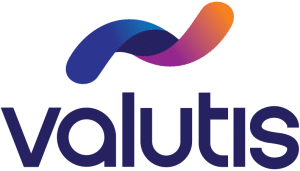Leaders are like fruit – you are either ripening or rotting.
In today’s dynamic and rapidly changing environment, no one can remain perfectly “ripe.” If you try to hold the line and remain static, your organization (and world) move past and you fall behind and begin to decline.
Consider this – if you work for a growing company – you, the leader, need to grow at a faster pace to stay relevant. For example – if your company is growing at 10% a year, I advocate you grow at 11% to 13% a year.
“Why?” you ask. Do the math…
If your organization grows at 10% a year and you only grow at 3% to 5% a year – how long does it take for you to become a liability? The company literally outgrows you and someone else fills the gap in your performance.
To ensure you “ripen” and not “rot” – I advocate for Developmental Plans.
I’m not talking about silly New Year’s Resolutions – we all know those are a farce. I’m talking about a specific document with defined activities to facilitate your growth and advancement as a leader.
Don’t rely solely on “on-the-job-learning.” It’s fine, but I look at it as a cost-of-living raise – it ain’t gonna make you rich! It only helps you stay even. To get ahead, you need more.
Try to build a plan for yourself. Use it in the coming year. Watch how your development becomes more noticeable, predictable, and impactful.
I recommend you use the following suggestions and filters to create your Developmental Plan.
Be Deliberate
Know what you are trying to develop/improve. Set specific objectives to address. Don’t rely on luck, chance or circumstance to dictate what you learn or don’t learn during the year. Be proactive in identifying specific knowledge, skills, abilities, or characteristics you intend to target and improve. For example: Learn to read and understand a P&L Statement; Learn to delegate with confidence and effectiveness; Understand and practice leadership skills for managing Millennials. Be specific.
Let Go of the Old
It is very difficult to grow into something new, different or better if you aren’t willing to let go of old, outdated practices and thought processes. Don’t let your history keep you stuck in a rut. Let go of what you know in order to make room for new and improved ways of operating. It is healthy to question and critique your beliefs and methods. If you pour concrete on your perspective – you don’t evolve.
Build Skills you Don’t Yet Need
Wayne Gretsky has a great quote that applies to Developmental Plans – “Skate to where the puck is going to be.” Picture the next two moves of your career. When you look at “that” job – what are the knowledge, skills, abilities or characteristics needed to succeed. Pick from that list and add it to your plan. By developing those now, you’ll be ready when the opportunity surfaces.
Get Uncomfortable
To make a notable improvement you need to take some chances and move outside of your comfort zone. If you don’t feel uncomfortable, you aren’t moving the chains. Don’t create a developmental plan that just rearranges the chairs on the deck of the Titanic. Stretch yourself. Get outside of your comfort zone and push the boundaries of your skills. That’s how to really learn/grow!
Find Time to Evolve
If you are like most, you don’t have time for anything else in your life. Consequently, you are going to work hard to create this amazing Developmental Plan only to see the great ideas and intentions get buried beneath emails and to-dos. You must make time for learning, practicing and applying any new skill/ability. It doesn’t happen without trial and error. Schedule time for your new efforts. Be sure you allocate some “prime time” and not at 10:30 p.m. when the house is quiet.
Be Humble
You are going to make mistakes. You are going to look foolish. You are going to fall short of perfection. You must be okay with this or you won’t make it. Accept that you don’t have all the answers. Allow yourself to make the mistakes needed to grow. Role model this to your direct reports. Create a culture where mistakes caused by learning and growth are embraced.
Developmental plans, when done well, are a great tool for Leaders. Take the time to develop one that is focused. Get in the habit of using this as your personal coach to ensure you are continually improving and “ripening.”
Give it a try – you’ll be glad you did!



